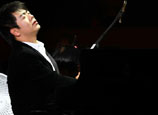
Sometimes, xia does not have a vested interest in the good-vs-evil standoff. He or she happens to come by, a la a cowboy sauntering into town, and witness an act of injustice. This dissociation from the crowds makes them pure bystanders whose righteousness determines the final result.
While the search for an English equivalent for xia is futile, I feel "maverick" may be the closest in capturing the strong sense of independence often embodied by this loner type.
In China, the family is the basic societal unit. When the emperor punishes an underling, it is not the death sentence that is the harshest. His whole family could be put to death - including even distant relatives. This kind of guilt by family connection deters most people from standing up for justice. It has to be a whole village or even larger assembly that gets organized and together faces the ultimate consequence of insurgence.
That makes the odd person who stands up to authorities a target of secret admiration - and probably of public ridicule if it happens in real life. These figures are often detached from the web of family associations. In fiction, they are usually portrayed as having no past, which, if you think of it, is the Chinese equivalent of having a mysterious past or a double identity, such as Bruce Wayne-cum-Batman.
In terms of existing religion, xia tends to gravitate toward Taoism rather than Confucianism. Taoism advocates freedom from worldly pursuits and disdains the lure of officialdom, but Confucian promoters seek to work from within the establishment to address social ills. In reality, Taoists tend to excel in art and literature, and the wuxia canon imposes a physical prowess onto them.


















 Beijing police save female hostage
Beijing police save female hostage


![]()
